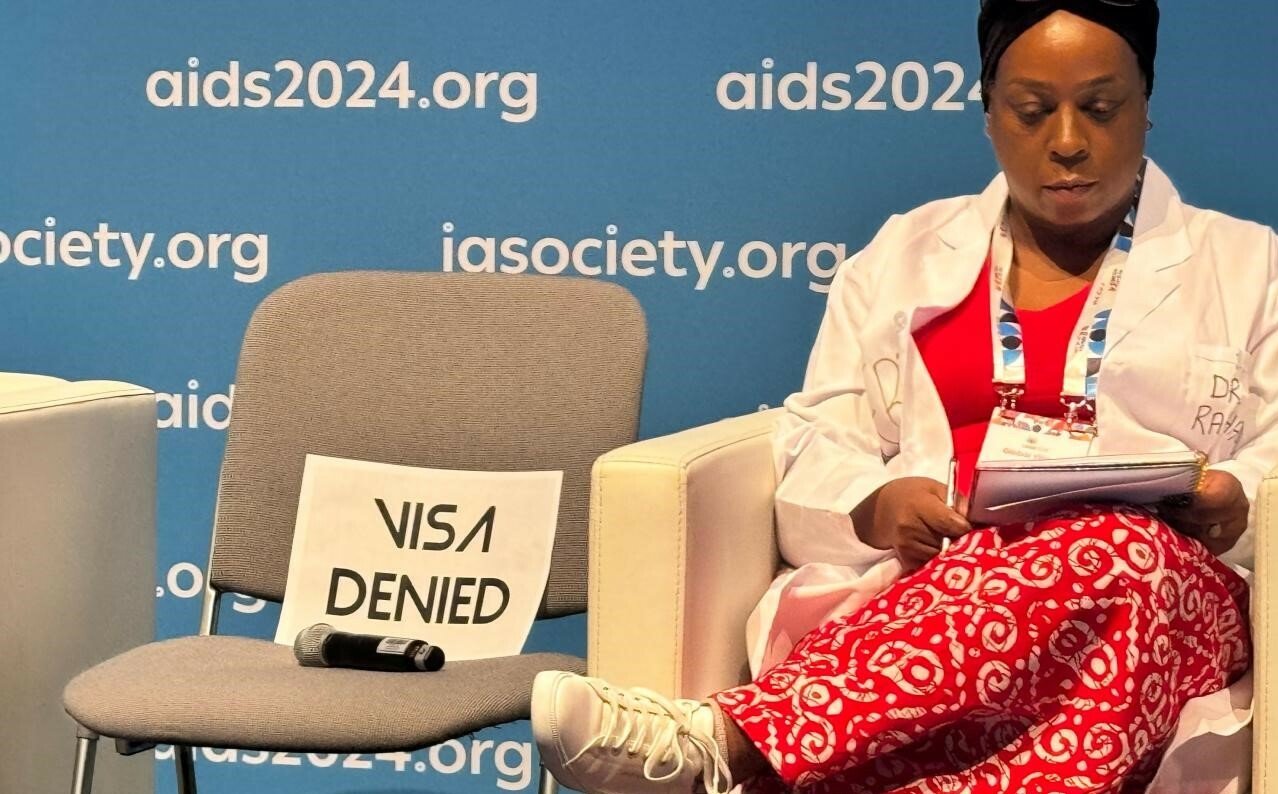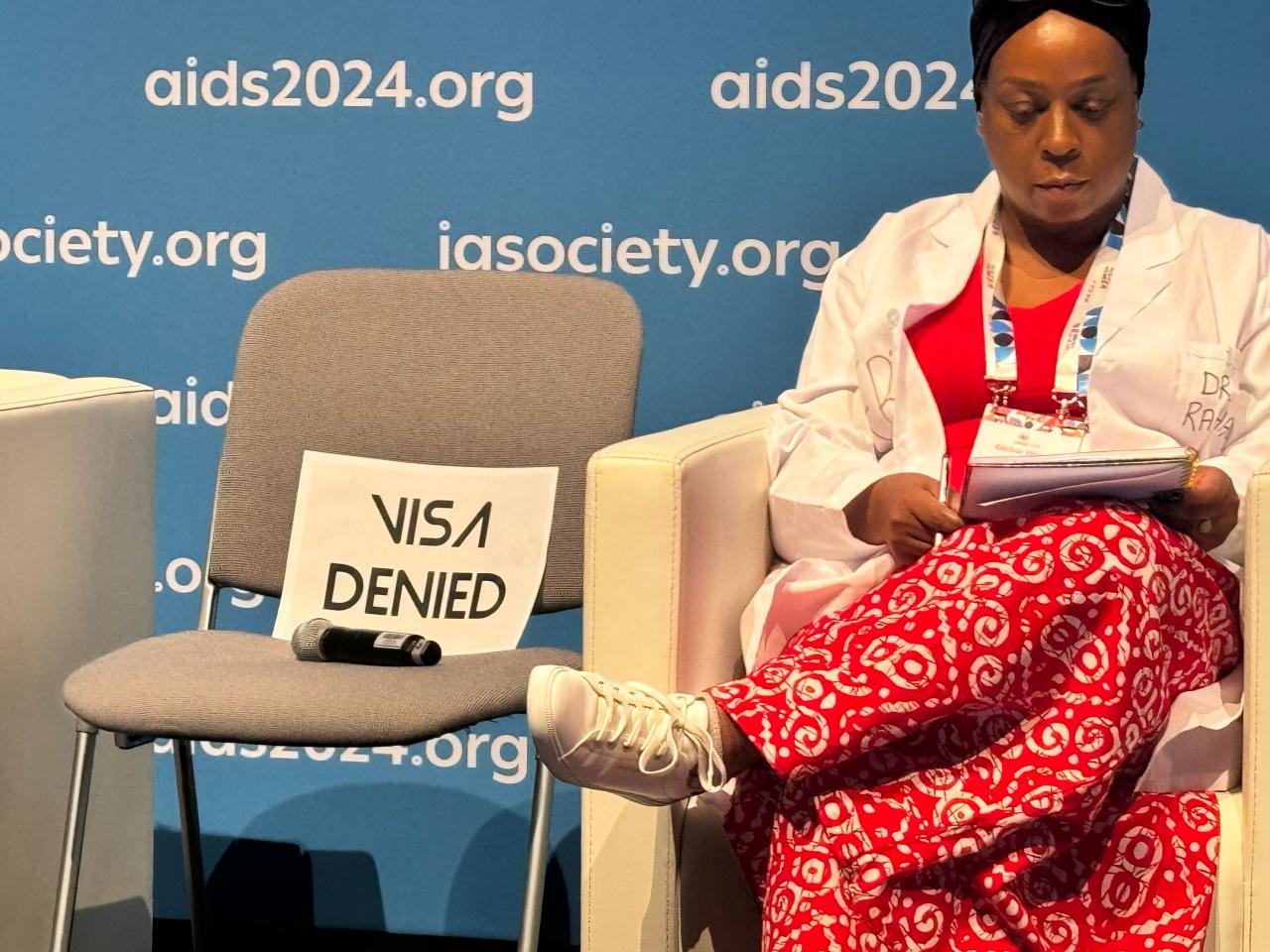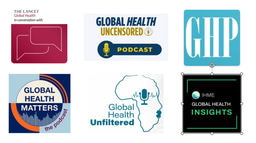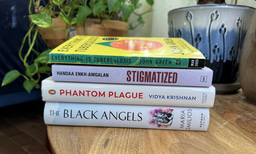Visa-friendly venues for global health meetings
Published in Social Sciences, General & Internal Medicine, and Public Health

Traumatic, humiliating, expensive, and unjust. Visas have always been a massive stumbling block for most people in the Global South, but things seem to have gotten substantially worse in the past few years, as I pointed out in my Forbes piece. Several others have pointed this out as well (for example these articles in PLOS Global Public Health, The Body, BMJ Global Health, Nature). And definitely read "How to organize a global health conference: a satirical guide."
Conference after conference is being negatively impacted, as illustrated by the AIDS meeting in Montreal in 2022, and the recent AIDS meeting in Munich in 2024 (photo below is from the Munich AIDS conference, with credit to Yvette Raphael and Nomfundo Eland). In fact, some conference organizers have been forced to move their already planned meetings to visa-friendly venues.

So, which countries are visa-hostile?
Ask anyone from a Global South country, and they will immediately point out the most visa-hostile countries: USA, UK, Canada, EU (Schengen), and Australia would top the list. In essence, all of the 'walled world' is visa hostile. Any global health meeting in these regions is fraught with challenges, especially for applicants from the African region, as shown by data by the LAGO Collective. Extremely long wait times for visa appointments, expensive visa fees, onerous requirements for documentation (think bank statements, tax returns, house ownership deeds and everything else imaginable!), and, of course, high rates of visa refusal are all well-known challenges. With the rise of far-right populism in many of these countries, things might only get worse in the coming years.
Visa-friendly options?
In this context, conference organizers have an obligation to host meetings in locations that are not visa-hostile. Are there ‘visa-friendly’ options that conference organizers should be considering? I asked this question on social media platforms (Twitter and LinkedIn) and got helpful advice and suggestions from a large number of people, which I will summarize here.
Tools and websites that can help meeting organizers
People who responded to my question pointed out several helpful tools that might help meeting organizers. These include:
- The Henley Openness Index which ranks all 199 countries and territories worldwide according to the number of nationalities they permit entry to without a prior visa
- List of African countries every African can visit without a visa in 2024
- Toolkit by Campaigns in Global Health
Other efforts are also underway to develop more comprehensive conference equity planning tools.
Audience ‘poll’ suggestions
Based on audience responses on social media (with all the usual caveats and limitations of such social-media based informal polls), these countries, stratified by regions, were mentioned by several people as being visa-friendly:
- In Africa:
- Rwanda
- Ghana
- Ethiopia
- Senegal
- Kenya
- Tanzania
- Morocco
- In Asia:
- Thailand
- Nepal
- Indonesia
- Bangladesh
- Singapore
- Malaysia
- Vietnam
- Sri Lanka
- Japan
- Philippines
- In Latin America:
- Peru
- Mexico
- Brazil
- Argentina
- In the Middle East:
- UAE
- Turkey
- Qatar
- Oman
Most popular suggestions
Rwanda and Thailand were easily the most popular picks by most respondents.
Mixed reviews
Countries like India and South Africa received mostly negative or mixed reviews, and were not suggested as visa-friendly by most people. In fact, South Africa is often seen as being visa-hostile to visitors from other African nations. For India, conference visas will be granted to delegates on “production of an invitation letter from the organizer(s), a copy of Ministry of Home Affairs (Foreigners Division) clearance for holding the conference and a copy of the communication from the Ministry of External Affairs conveying political clearance.” Interestingly, Russia and China were not suggested as options for global health meetings.
It takes more than visa-friendliness for a good meeting
While the above are helpful suggestions, several people pointed that visa-friendliness alone is not sufficient. Conference organizers need to also worry about meeting their numbers and breaking even. They look for large conference venues, good hotels, convenient airports and flight schedules, safety and security (e.g. free of ongoing conflicts), and national policies that do not discriminate against specific groups (LGBTQ+ for example). So, for example, while Uganda might be reasonably visa-friendly, it would not be a safe place to host an AIDS meeting right now, given the anti-gay policies of the government.
Online/hybrid options are still valuable
During the Covid-19 pandemic, nearly all conferences were forced to move online, and this allowed easier access to people around the world, including people who are unable to travel freely, or cannot afford to take time to travel. In our rush to move to in-person meetings, we should not forget the hybrid option to make our meetings more inclusive and accessible. Our McGill Summer Institutes in Global Health has walked the talk on this, with several online and hybrid courses. This was, in part, necessary to deal with the tough visa realities of Canada.
Conclusion
While hosting meetings in more visa-friendly and Global South locations will not address all the power asymmetries inherent in global health, they could certainly improve the current unfair, unjust, and humiliating system that needlessly taxes and traumatizes people in the Global South.
Global North meeting organizers, we have work to do! We need to be more reflexive, and must acknowledge that passport and visa privileges make for a highly unequal and non-diverse global health field. We can and must advocate with our governments about the need for easier, more compassionate, less expensive and faster visa processes. At a minimum, we must consider hybrid options, as well as alternate the venue between Global North and South locations. If we do nothing, we will end up excluding colleagues who need to be leading the agenda!
Acknowledgements
I am grateful to everyone who responded to my Twitter and IN posts and offered suggestions. I am grateful to Yvette Raphael and Nomfundo Eland for sharing the photograph from the AIDS meeting in Munich. If you spot any factual errors, or have any suggestions on this post, please contact me via X (@paimadhu) or LinkedIN.
Follow the Topic
Your space to connect: The Primary immunodeficiency disorders Hub
A new Communities’ space to connect, collaborate, and explore research on Clinical Medicine, Immunology, and Diseases!
Continue reading announcement




Please sign in or register for FREE
If you are a registered user on Research Communities by Springer Nature, please sign in
What a fantastically useful resource, Madhu!